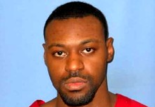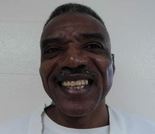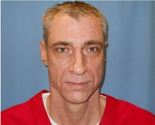

JACKSON, Mississippi (AP) — A Mississippi death row inmate who argues he was the victim of mistaken eyewitness identification is asking the U.S. Supreme Court for a new trial.
Caleb Corrothers is arguing that a cognitive psychologist would have offered examples of studies which have shown the memory of witnesses who saw something only briefly diminishes dramatically over time. A trial judge in Lafayette County declined to allow the jury to hear such testimony.
The arguments from Corrothers were rejected last June by the Mississippi Supreme Court. The Mississippi high court said in a 5-4 decision that the trial judge was correct in blocking expert-witness testimony of a cognitive psychologist because the discipline relies on subjective beliefs or speculation.
Corrothers, now 33, was convicted in 2011 in Lafayette County on two counts of capital murder and sentenced to death.
Prosecutors objected to the cognitive psychologist, saying cognitive psychology is not legitimate science. Prosecutors said the credibility of a witness is a fact to be determined by a jury.
The trial judge determined the psychologist’s testimony was unreliable and irrelevant.
The Mississippi court’s majority said expert testimony will always be deemed unreliable if it is the product of subjective belief or speculation. Four dissenting judges on the Mississippi court said Corrothers was denied the chance to attack the evidence against him.
The Mississippi attorney general’s office has until Feb. 25 to file a response to Corrothers’ petition.
Prosecutors said Taylor Clark and his father, Frank Clark, were shot and killed on July 11, 2009, in their Oxford-area home over drugs and money. Tonya Clark, Taylor’s mother and Frank’s wife, was wounded. Another son, Josh Clark, was present but was not injured.
Court records show Josh Clark picked Corrothers out of a photo lineup. Josh Clark and Tonya Clark identified Corrothers from the stand during trial, but records also show Tonya Clark was unable to pick Corrothers out of a pre-trial photo lineup.
The defense said testimony of a qualified cognitive psychologist could have helped the jury in assessing those identifications.
Corrothers argued the testimony was important to his right to a proper defense.



